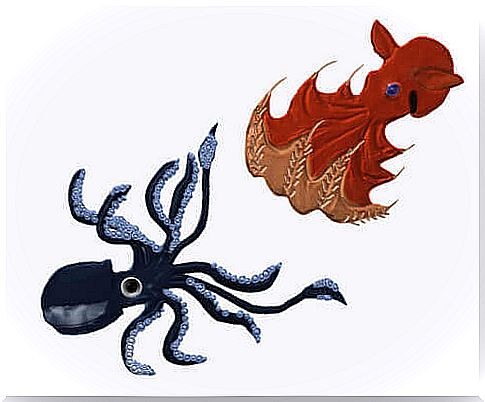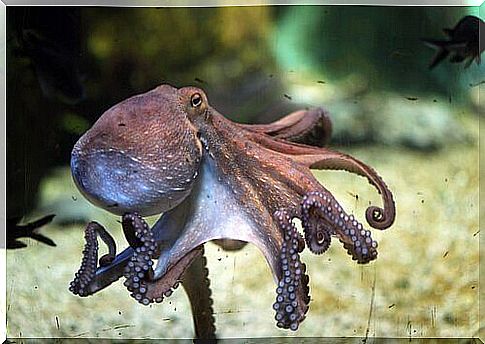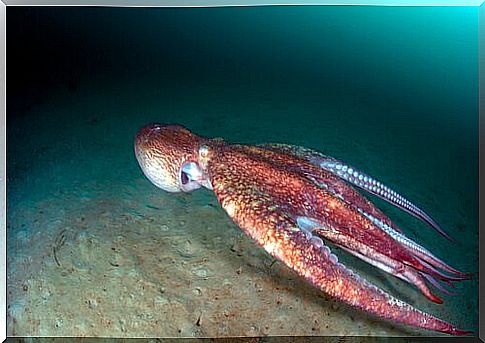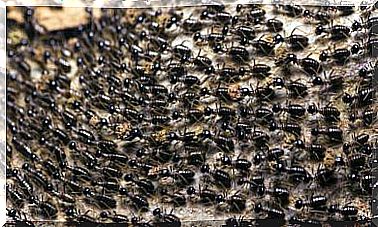What Are The Differences Between Octopus And Squid?

Octopuses and squid belong to the same class as cephalopods and have characteristics in common. In addition to these, which we will see at the end of this article, today we will focus more on the differences that make octopuses and squid truly unique and special.
The main differences between octopus and squid
Both are cephalopod molluscs , that is, animals that have “feet attached to the head” and their body is divided into three parts: head, neck and trunk. To help you learn more about these two marine animals, we have collected the 6 main differences between octopuses and squids and which concern different aspects of their morphology, but also of their behavior. Let’s see them together:
1. Sociability and longevity
Let’s start by saying that octopuses are animals with solitary habits for most of their life. In fact, only females and males unite to reproduce. Conversely, squid can live quietly in groups or even be alone. In relation to life expectancy, the former can live from one to three years. Squids are longer-lived and reach the age of five.
2. Food and hunting techniques
Octopuses are omnivores, so they feed on animals, crustaceans and fish mainly, but also on algae. In order to get food they move their eight arms as if they were earthworms and attract prey. They can also sink their mouth, which has a real beak, onto the shell or body of their victim.

3. Dimensions and carapace
Although both species can be of considerable size, the octopus is much smaller than the squid. In adulthood, octopuses can measure up to 5 meters, while squid of up to 20 meters in length have been spotted.
4. Swimming and propulsion
Squids possess an organ called hyponomic sinus, which allows them to move after expelling water under pressure. They reach incredible speeds! The opposite is true for octopuses, which move slowly using their eight tentacles equipped with suckers.

5. Reproduction
Male octopuses have a special mating arm – known as an ectocotyl – which allows them to fertilize the female. Once the reproduction process is complete, it lays its eggs in a specific space in its den. Then it stays close to the young, to prevent them from being devoured by predators and dies just as the eggs hatch.
Squids mate in groups and place their eggs among the algae or on the ocean floor. Like their “cousins”, females also die after the birth of their offspring.
6. Habitat and distribution
Squids prefer to live in the open sea at a depth of about 1,000 meters, while octopuses prefer the burrows of sea caves or even coral reefs, hiding among the rocks, but always close to the surface.
Features common to octopuses and squid
In addition to belonging to the same class and having tentacles equipped with suckers, octopuses and squid have several characteristics in common. One of this is their intelligence. Both species are considered to be among the most cunning animals, as their nervous systems are highly developed.
What attracts the attention of scientists the most, when they analyze octopus and squid, is that they have learned everything they know without anyone’s help. Since fathers “disappear” after intercourse and mothers die shortly before the eggs hatch, they have no one to set a good example for them.
That is why it is so curious that they can blend in and hide so well in the environment or that they can hunt with such skill. Finally, another common quality between octopuses and squid is that both can produce a toxic ink, which serves to escape possible dangers.









